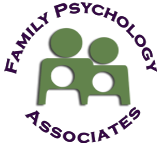A Review of Treament for Depression and Anxiety
Talk therapy vs. medication vs. both?
By Patricia Steflik, LMHC
The take away message from TV, internet and other forms of media advertisements would have us believe that the answer to all manner of ailments or conditions lies in a “pill.” The recent July issue of Consumer Reports magazine presented the results from a survey conducted in their 2009 Annual Questionnaire to address the question whether medication or talk therapy or some combination of both was more effective. They surveyed more than 1500 respondents who had sought professional help for depression, anxiety, or both. Nearly 78% of the respondents received medication for their depression or anxiety. The article went on to report a tremendous growth of the use of antidepressant drugs in the past 15 years.
“According to IMS Health, a group that monitors drug sales, doctors in the US prescribed $9.9 billion worth of antidepressants in 2009; the third most prescribed class of drugs in the country, after cholesterol-lowering drugs and codeine-based painkillers, thanks at least in part to years of aggressive marketing.”
CR’s survey looked at mental health treatment as it’s practiced in the real world as opposed to the carefully controlled environment of clinical trials of psychiatric drugs.
A summary of some of their findings were:
- Talk therapy helps. The survey indicated that the advantages of talk therapy over medication were that individuals did not experience drug side effects and it provided them the opportunity to learn new skills or tools to improve their mental health over the long term. Cognitive-Behavioral Therapy, a widely used method, helps people learn to recognize and change thoughts or behaviors that may be contributing to their distress.
- Some drugs have an edge over others: one size does not fit all. The article compared several classes of drug therapy widely known and used by practitioners in the treatment of depression and/or anxiety disorders (e.g. SSRIs and SNRIs). It would appear that there may be a trade off between degree of effectiveness and some of the side effects that may occur.
- Reports of Anxiety symptoms have increased. Compared to the 2004 mental health survey conducted by CS, the percentage of people experiencing anxiety had increased from 41 to 58%.
- Side effects had shifted. Side effects reported among people taking antidepressants were higher than those reported in drug company funded studies.
- Type of therapist doesn’t matter. PhD Psychologists, Licensed Social Workers and Licensed Professional Counselors received equal ratings from those who participated in talk therapy.
To summarize further some of the main points in this article; it would appear that relying solely on medication may bring short term relief but when you stop taking the medication the problem may return; how well talk therapy helps often depends on compatibility with the therapist and the number of sessions an individual attends. When people stayed with talk therapy for at least seven sessions they had significantly better outcomes. Overall, patients got the best results from drugs and talk therapy together.
To read more about this see the July 2010 Consumer Reports magazine article “Depression & anxiety; readers reveal the therapists and drugs that helped.”
Filed Under: Helpful Articles
